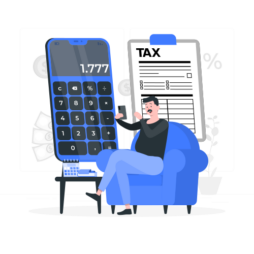Need pension advice?
Expert Retirement Planning & Financial Advice
Financial advice on Pension Drawdown, Annuity, Retirement Planning, Transfers,
Consolidation, Final Salary & more. Get your free pension review today.
REGULATED PENSION EXPERTS
Why choose Hanson Financial Advisors?
Hanson Financial Advisors is the perfect choice for anyone looking to get expert advice on their pension. Our service makes it easy to find and be matched with the best pension advisor for your specific enquiry, giving you peace of mind that you are getting tailored advice from a professional in this field.
Moreover, all of the financial advisors we partner with are regulated by the Financial Conduct Authority so you can trust that any guidance given will be held up to strict standards and regulations. The financial advisors we work with have already helped hundreds of people like yourself get reliable pension advice, so why not join them today?

Get financial advice, claim your free appointment with an expert
PENSION ENQUIRY TYPES
What advice can I get from a pension expert?
People are better off seeking financial advice from a professional as it can help them make decisions that will lead to long-term financial success.
An initial free no-obligation consultation, will enable you to review your options and make the best decision to meet your retirement goals and needs.
"Studies have shown that those who receive professional advice tend to achieve an average of 3% higher returns on their investments than those who do not seek out such guidance."
Get the right pension advice in 3 simple steps
A specialist service that connects you with a pension expert.
STEP 1
Online Form

Our online form will allow our retirement planning team to get in touch with you and arrange your Free Discovery Session.
STEP 2
Free Discovery Session

Your Free Discovery Session will take place with our FCA approved independent financial adviser. This conversation will focus on your current situation, future aspirations and how we might be able to help.
STEP 3
Make the Right Decision

Once you have all the options to hand you can take your time to see whether you wish to proceed with our financial advice service.

A COMPANY YOU CAN TRUST
Frequently Asked Questions
What is a Pension?
A pension is a type of long-term savings plan designed to provide an income when someone retires from work. It usually involves contributions from both employers and employees over time, which are invested by specialist companies on behalf of savers. When it’s time for retirement, these investments turn into regular payments that form part or all of someone’s income during their later years in life.
How much should I pay into my Pension each month?
The amount paid depends on individual circumstances but typically people save between 10% - 15% gross salary each month towards their pension pot - though this figure can change depending upon age & earnings levels etc., with higher earners likely paying more than lower earners because tax relief also applies for those earning above certain thresholds.. Generally speaking however experts recommend saving 12%, regardless age/income level since this provides good coverage against inflationary pressures & helps ensure enough funds will be available come retirement day!
Can I withdraw money early before Retirement Age?
Yes, it is possible however withdrawing funds before reaching official State Retirement Age (currently 65+) could mean incurring hefty penalties plus losing valuable tax advantages associated with longer term saving periods... Therefore we strongly recommend seeking expert advice if you are looking to do this.
What is the state pension?
The state pension is a regular payment from the government to help with the cost of living in old age. The payments begin when you reach the government’s state pension age (currently 65 for men and rising from 60 to 65 for women).
You won’t automatically be paid the state pension – you have to make a claim for it. Four months before you’re due to reach the state pension age the Government’s Pension Service should contact you and guide you through the process. There are three ways to claim your state pension – online, over the phone (0345 604 3349), or by post.
The size of state pension payments depends on the number of ‘qualifying years’ of National Insurance you have. You need at least 10 years to qualify for any pension at all – these don’t need to be consecutive years but could be spread out across your lifetime. Qualifying years of National Insurance come from payments made while working, as well as credits earned while training, having a family or if you have been sick or disabled.
10 years entitles you to the basic pension – 10/35ths of the potential total (currently £46 a week). Prior to April 2016, there was no minimum qualifying number but recent government changes mean that if you don’t have 10 qualifying years you aren’t entitled to any state pension. To claim a full state pension (£159.55 a week) you will need 35 qualifying years.
How much do I need in my pension?
This very much depends on how much you’re likely to want in retirement. A recent survey carried out by consumer campaigners Which? found that the average retiree household currently spends around £2,200 per month (or £26,000 per year). This pays for a comfortable lifestyle that includes basic costs and expenses, as well as some travel (Europe) and a few of life’s luxuries. Retiree households taking longer haul flights and regularly making larger purchases, such as new cars, spent £39,000 per year, or £3,250 per month.
The amount you’d need in your pension pot to support these different lifestyles depends on the type of pension that you have, as well as how you choose to take it. The state pension will go some way towards costs but at £159.55 a week (if you qualify for the maximum) that still leaves a considerable gap. According to the Which? figures, a retired household (i.e. a couple) looking to spend around £2,200 a month would need a joint income pot of £370,000 (with an index-linked, joint-life annuity pension) – for £3,250 a month income this figure rises to £1 million.
Another, very straightforward way to get some idea of the size of the pension pot you’re likely to need is to take the annual income you’d like to have on retirement and times it by 20.

Speak To A Member Of The Team Today
Get regulated independent advice from one of our FCA regulated advisor today.
Hanson Financial Services is a trading style of Thomas Brannigan who is authorised and regulated by the Financial Conduct Authority under reference 482628 on the Financial Services Register https://register.fca.org.uk/.
Registered office: Oriel Chambers, 14 Water Street, Liverpool, Merseyside L2 8TD, UK.
Secondary office: Suite 6, 42 Jamaica Streeet, Liverpool, Merseyside, L1 0AF, UK.
If you wish to register a complaint, please write to info@hanson-ifa.co.uk or telephone 0151 708 7616. A summary of our internal complaints handling procedures for the reasonable and prompt handling of complaints is available on request and if you cannot settle your complaint with us, you may be entitled to refer it to the Financial Ombudsman Service at www.financial-ombudsman.org.uk or by contacting them on 0800 0234 567.
Privacy Policy | Terms of Use

